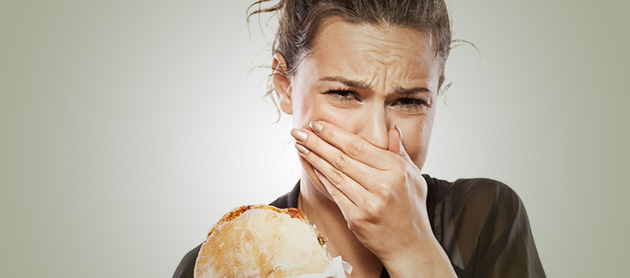Taking a chance at potluck?

Let’s not beat around the haystack – potluck lunches are a much-loved institution of Adventist churches everywhere.
However, they are not always great for one’s…ahem…constitution. Sometimes the tummy trouble an hour or two post-feast can adversely affect Sabbath afternoon lay activities, well into Sunday. Yes, we’re talking about food poisoning, but also the effect of the global pandemic on our great Adventist tradition.
When we talk about Risk Management we really mean “outcome management”. The question to ask is, “What is the desired outcome?” Or, “What is our goal?”
Potluck lunches and shared meals bring about a sense of community and togetherness. They are great for our mental health and wellbeing. So, many churches use the opportunity to serve food as part of their fellowship activities and ministry endeavours.
So how can you still incorporate food to achieve the goals your ministry or activity seeks?
Here are our top tips for ensuring your hospitality ministry doesn’t give anyone more than just a free lunch:
- If you’re sick with a stomach bug, cold or flu, or gastrointestinal virus DO NOT COOK FOOD FOR ANYONE! In fact, it would be wise to sit out completely.
- Keep cold food cold. Keep hot food hot. The food ‘danger zone’ is between 5 to 60 degrees Celsius.
- As an alternative to buffet-style food service, consider switching to either pre-crafted meals, individual packaged items or delivered meals if your budget and capacity allows.
- Do not leave food sitting out for more than 2 hours. If there are leftovers, it may be tempting to store the food so it’s not wasted, but after 2 hours left out food becomes a hazard and the risk of contamination are too great.
- If a platter is near empty, replace it with a fresh platter rather than add more food to it. (Ensure COVID-safety restrictions allows sharing of plates at the time of reading this.)
- As is always recommended, wash hands before preparing and eating food.
- Tie back long hair when preparing or serving food.
To glove or not to glove?
We get this question from time to time. Surprisingly, the Food Standards Code does not require food handlers to wear gloves. If, however, a food handler has a cut hand with a bandaid covering the wound then wearing gloves is recommended.
Wearing gloves comes with further responsibilities as they need to be changed regularly. Gloves must be removed, discarded and replaced in the following circumstances:
- After handling raw food
- After using the toilet, smoking, coughing, sneezing, using a handkerchief, eating, drinking or touching the hair, scalp, face or body.
So it is up to you, and what your church catering committee feels they have the capacity to do. You can read more about safe food handling here.
